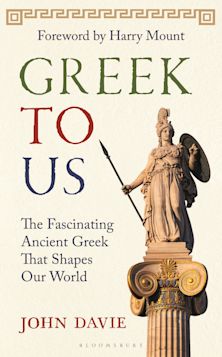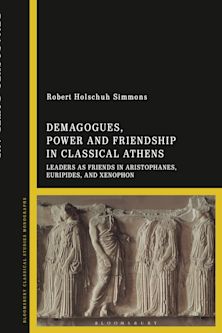The Audiences of Herodotus
Oral Performance and the Major Battle Narratives
The Audiences of Herodotus
Oral Performance and the Major Battle Narratives
This product is usually dispatched within 1 week
- Delivery and returns info
-
Free US delivery on orders $35 or over
Description
By recognizing the pervasive influence that Herodotus’s career as an oral performer had on his composition of the Histories, The Audiences of Herodotus: Oral Performance and the Battle Narratives argues that the Histories’ versions of the three most important battles in the Persian Wars—the battles of Thermopylae, Salamis, and Plataea—persistently and disproportionately advance the interests, biases, and political agendas of distinct audiences in the mid-fifth century, well before Herodotus assembled his famous work of history as it survives to us. The Salamis and Plataea narratives reflect a mid-century audience of Athenians and their allies; the Thermopylae narrative reflects an Amphictyonic audience gathered at the Pythian Festival. Ian Oliver concludes that, as a participant in a culture of wisdom performance (epideixis), Herodotus originally composed short, ideologically motivated performance pieces that he intended to promote tendentious reinterpretations of these momentous events, then relied on these narratives when he composed his final text: the unitary Histories.
Table of Contents
Acknowledgments
Introduction: Epideixis and the Histories
Chapter I: The Battle of Plataea: 8.133 – 9.70
Chapter II: The Other Greeks in Herodotus’s Plataea Narrative
Chapter III: The Battle of Salamis: 8.1 – 8.96
Chapter IV: Athenian Mainstays in the Salamis Narrative
Chapter V: The Battle of Thermopylae: 7.172 – 7.233
Chapter VI: Herodotus and Epideixis at the Pythian Festival
Conclusion: The Impact of Audience-Based Criticism
References
Appendix: Identifying Further Epideictic Material
Bibliography
About the Author
Product details
| Published | Jan 29 2025 |
|---|---|
| Format | Hardback |
| Edition | 1st |
| Extent | 204 |
| ISBN | 9781666936209 |
| Imprint | Lexington Books |
| Illustrations | 2 Tables |
| Dimensions | 9 x 6 inches |
| Publisher | Bloomsbury Publishing |
Reviews

ONLINE RESOURCES
Bloomsbury Collections
This book is available on Bloomsbury Collections where your library has access.


































